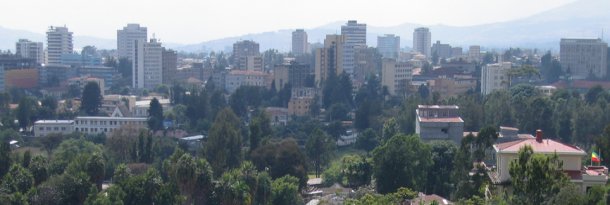|
|
Religious diversity is also prominent, with Ethiopian Orthodox Tewahedo Christianity being the predominant faith, followed by a significant Muslim population and a growing number of Protestants. This coexistence fosters a rich array of religious festivals and traditions that are observed with great fervour throughout the year. The city's social fabric is characterised by a strong sense of community, hospitality (known as 'fiker' or 'ubuntu' in a broader African context), and resilience. Traditional coffee ceremonies, a cornerstone of Ethiopian social life, are a common sight, symbolising warmth and connection. Music, art, and traditional dance forms thrive, often performed in 'cultural restaurants' and local venues, offering an authentic taste of Ethiopian heritage. As the capital, Addis Ababa's economic profile is the undeniable financial engine of Ethiopia. Its economy is predominantly service-based, with trade, finance, hospitality, and telecommunications being major contributors. The city serves as the primary gateway for international trade and investment into Ethiopia, attracting both domestic and foreign businesses. Small and medium-sized enterprises (SMEs) form the backbone of the local economy, ranging from artisanal crafts to small-scale manufacturing. Construction is a perpetually booming sector, transforming the city's skyline with new commercial buildings, residential complexes, and infrastructure projects. Bole International Airport (ADD) is a critical component of Addis Ababa's infrastructure, serving as one of Africa's busiest and most important aviation hubs. Ethiopian Airlines, the national carrier and Africa's largest airline, uses Addis Ababa as its main base, connecting the continent to the rest of the world. Beyond air travel, the city's internal transport network has seen significant improvements, notably with the introduction of the AALRT in 2015, which has eased some of the urban mobility challenges. Road networks are continually being expanded and upgraded, and public transport options, including buses and minibuses, are widely utilised. Despite these advancements, the informal sector remains a significant part of the economy, providing livelihoods for many, particularly in the vast Merkato market. |
Addis Ababa Profile |
Addis Ababa Profile |
Addis Ababa Profile | Addis Ababa Profile |
Explore all about the African country of Ethiopia in a series of articles, pictures, videos and images.
More >
 |

|
Addis Ababa's international prominence cannot be overstated. It is widely recognised as the "Diplomatic Capital of Africa" due to its role as the seat of the African Union (AU) headquarters. This makes Addis Ababa the primary venue for pan-African political and economic discussions, shaping the continent's agenda and its engagement with the global community. The city also hosts the UN Economic Commission for Africa (UNECA) and a multitude of embassies, consulates, and international organisations, affirming its status as a crucial centre for diplomacy, development, and humanitarian efforts. The presence of these institutions not only brings an international flavour to the city but also provides significant employment opportunities and fosters a cosmopolitan environment. Ethiopia's long history of independence and its active role in global affairs, including its contributions to UN peacekeeping missions, reinforces Addis Ababa's stature as a key player in international relations.
In terms of healthcare, Addis Ababa boasts the best medical facilities in Ethiopia, comprising several major hospitals, specialised clinics, and a growing number of private health institutions. These facilities serve not only the city's residents but also patients from across the country and, at times, from neighbouring regions. Efforts are continuously underway to expand access to healthcare services, improve medical infrastructure, and enhance the quality of care, though challenges related to capacity and specialised expertise persist. Addis Ababa offers a wealth of attractions that reflect its rich history and vibrant culture:
Despite its impressive growth and stature, Addis Ababa faces significant challenges inherent to rapid urbanisation in a developing country. These include providing adequate housing for its expanding population, managing increasing traffic congestion, ensuring efficient waste management, addressing air quality issues, and combating poverty and inequality. The strain on public services and infrastructure requires continuous investment and strategic urban planning. However, the future outlook for Addis Ababa remains optimistic. The city is at the forefront of Ethiopia's developmental aspirations, with ongoing infrastructure projects, efforts to attract foreign direct investment, and initiatives aimed at fostering sustainable urban growth. Its role as a diplomatic and economic hub is expected to strengthen, further integrating it into the global economy and positioning it as a key player in shaping the African narrative. |




 Addis Ababa is a leading centre for education and healthcare within Ethiopia. Addis Ababa University (AAU), founded in 1950, is the oldest and largest university in the country, playing a pivotal role in research, innovation, and human resource development. The city is also home to numerous other public and private universities, colleges, and vocational training centres, catering to a diverse student population and contributing significantly to the nation's intellectual capital.
Addis Ababa is a leading centre for education and healthcare within Ethiopia. Addis Ababa University (AAU), founded in 1950, is the oldest and largest university in the country, playing a pivotal role in research, innovation, and human resource development. The city is also home to numerous other public and private universities, colleges, and vocational training centres, catering to a diverse student population and contributing significantly to the nation's intellectual capital.


